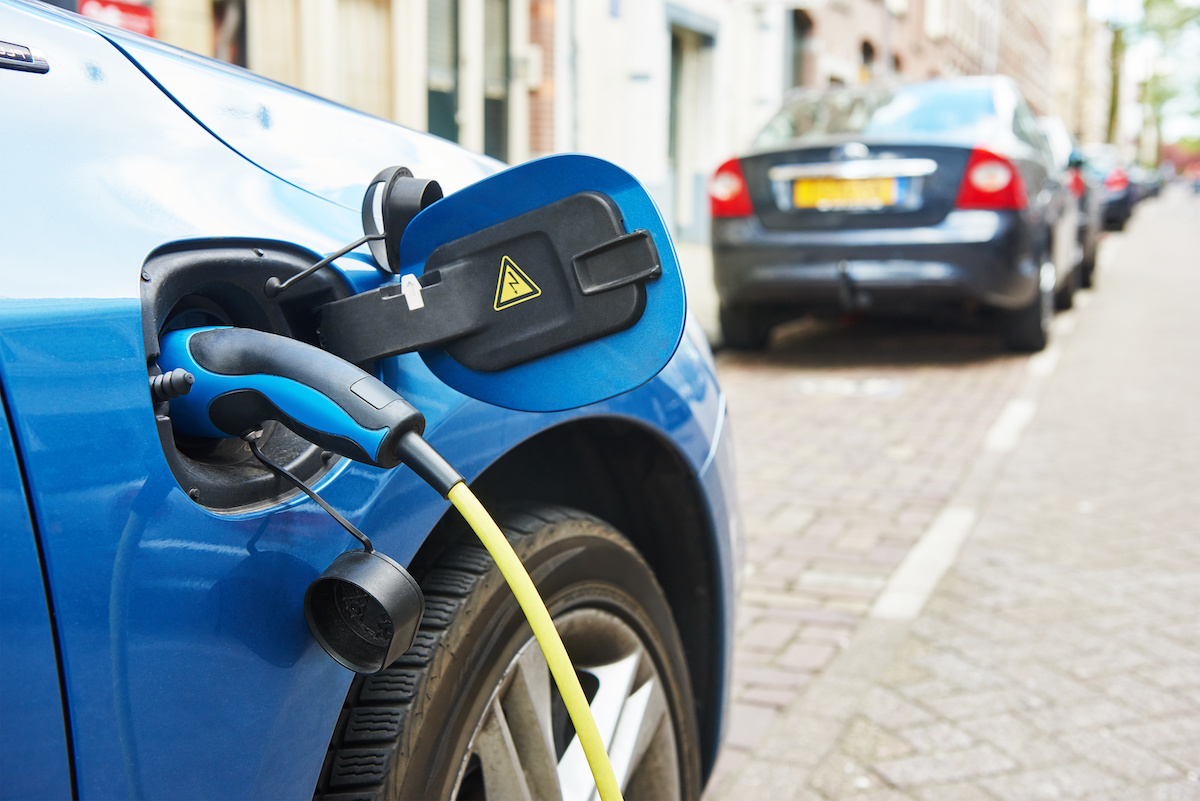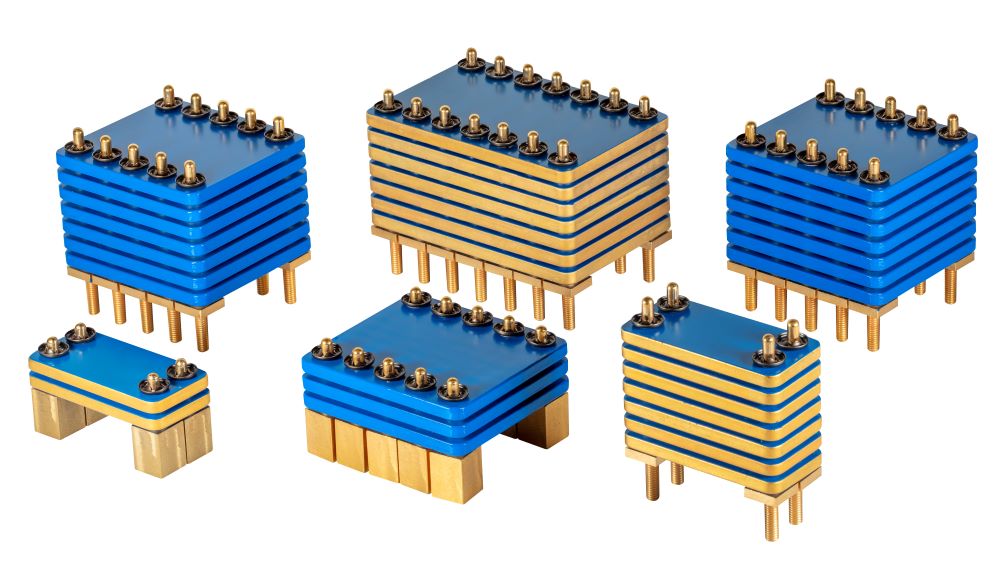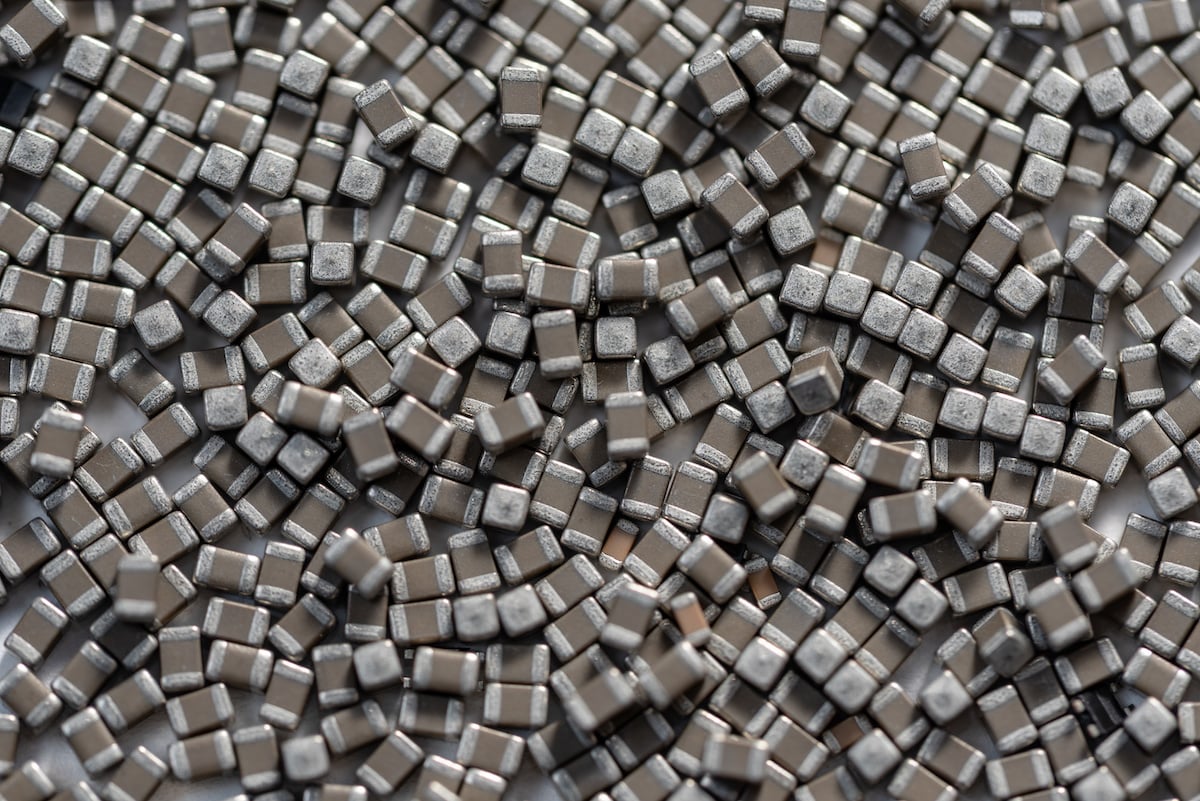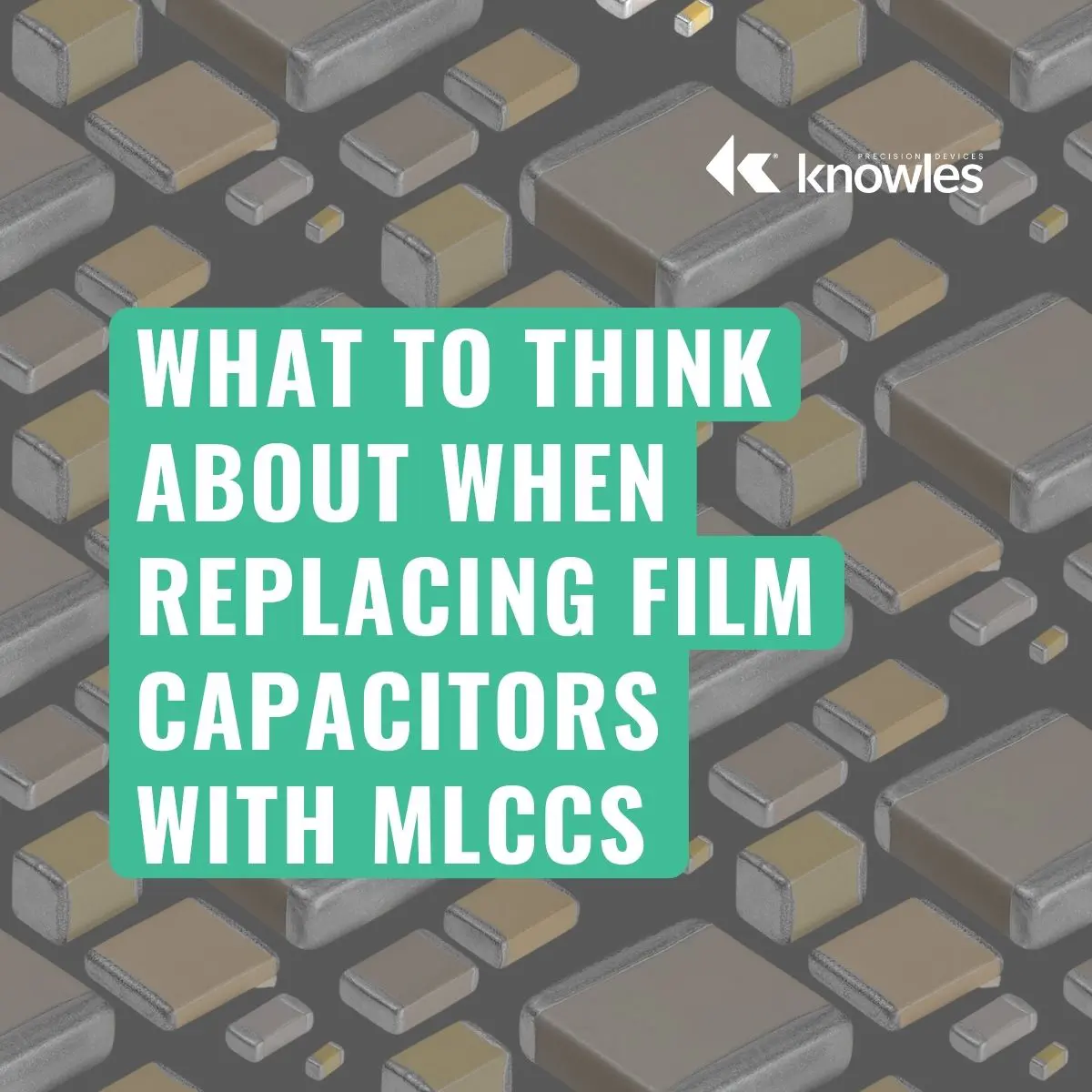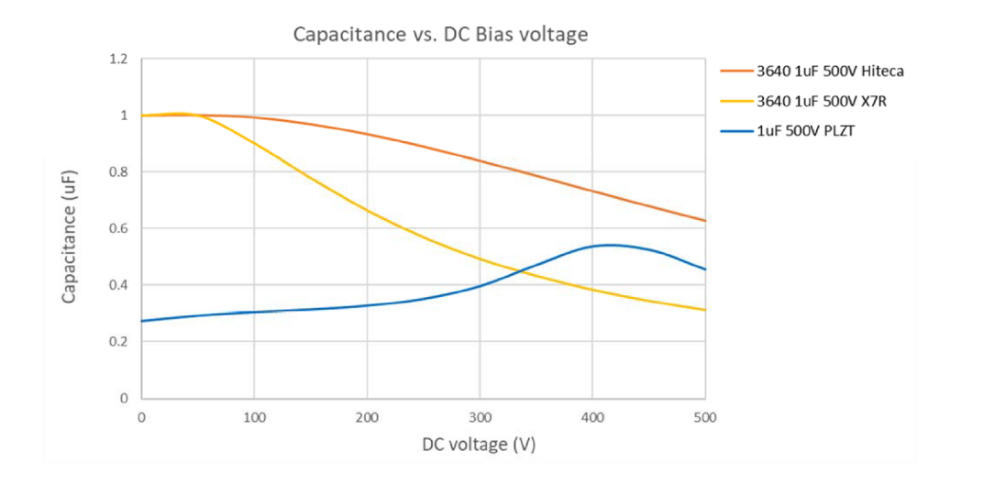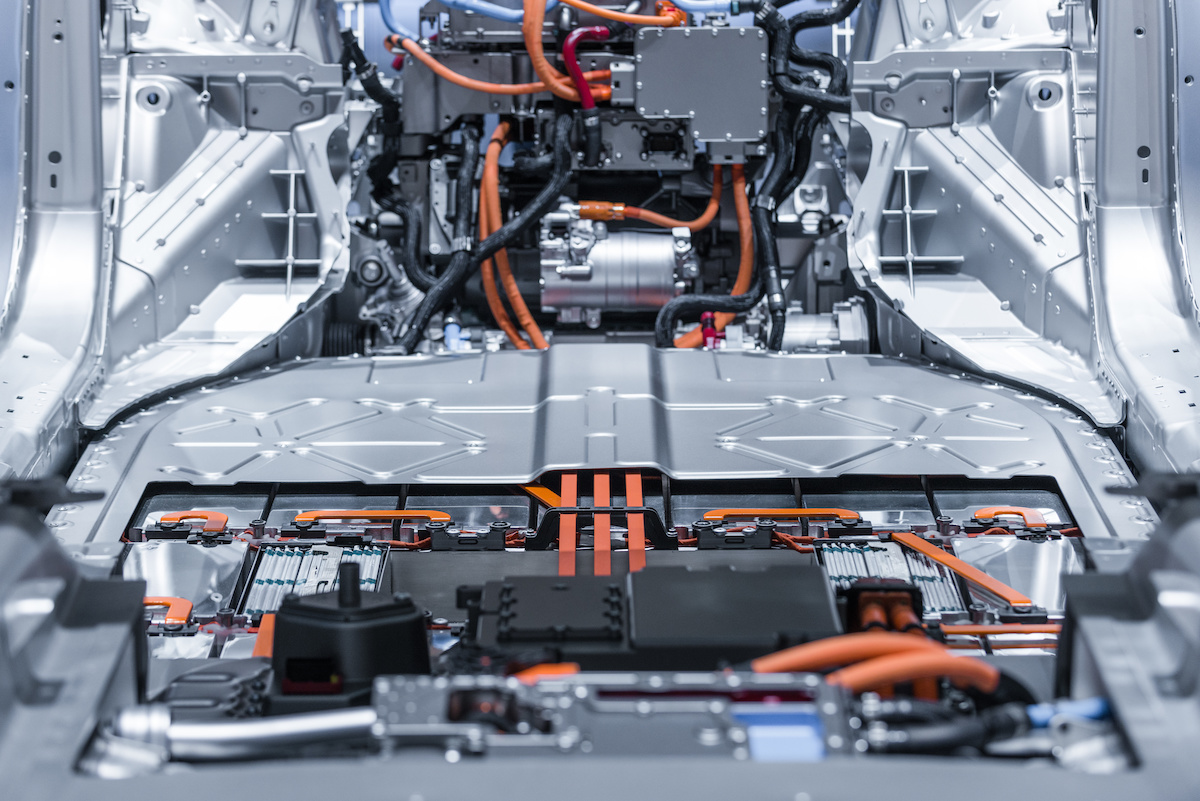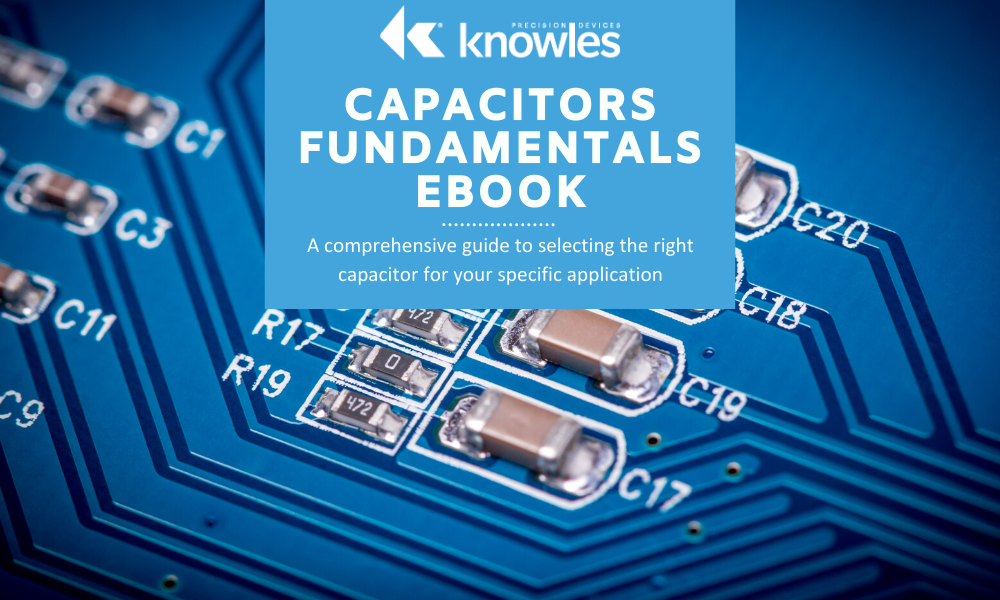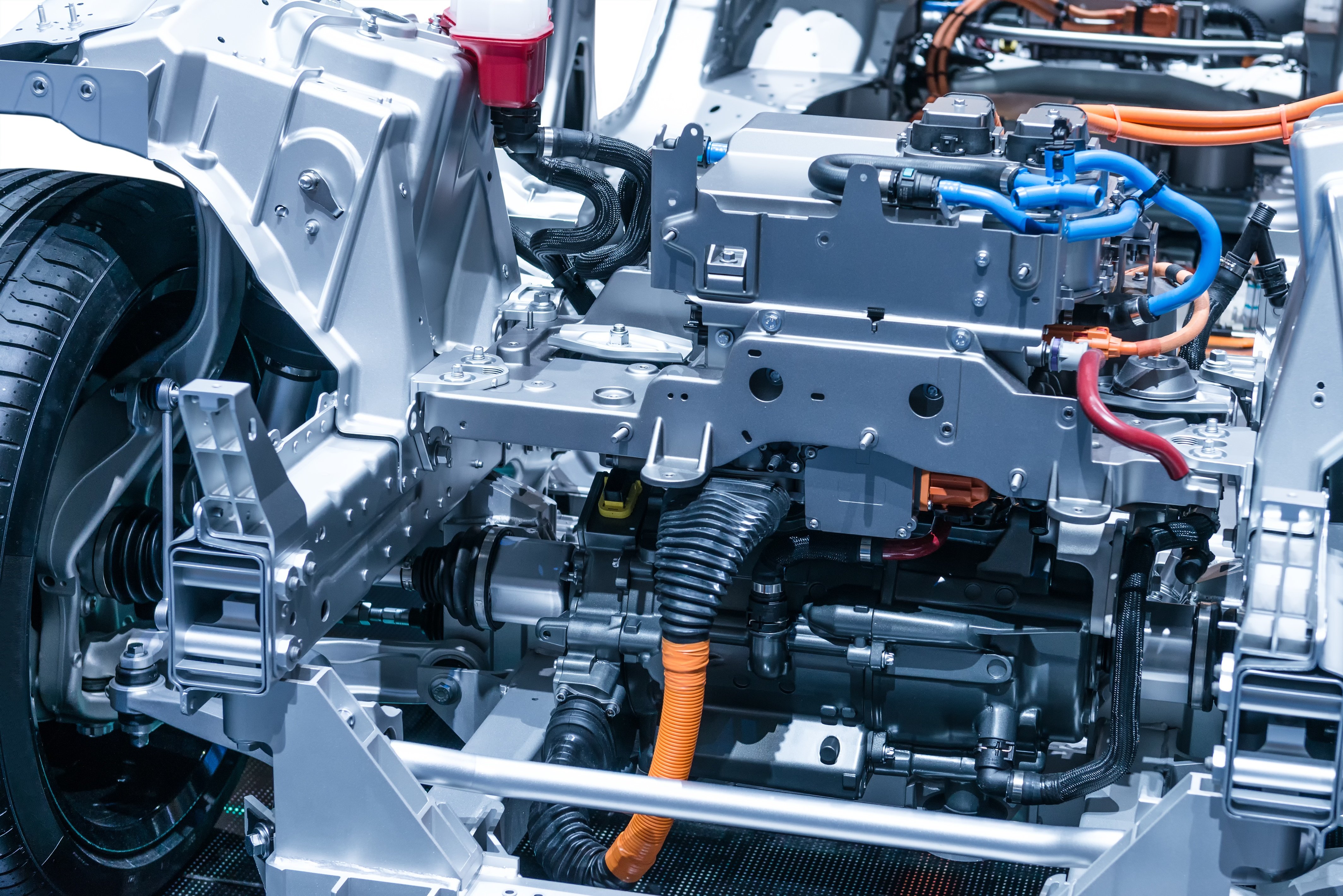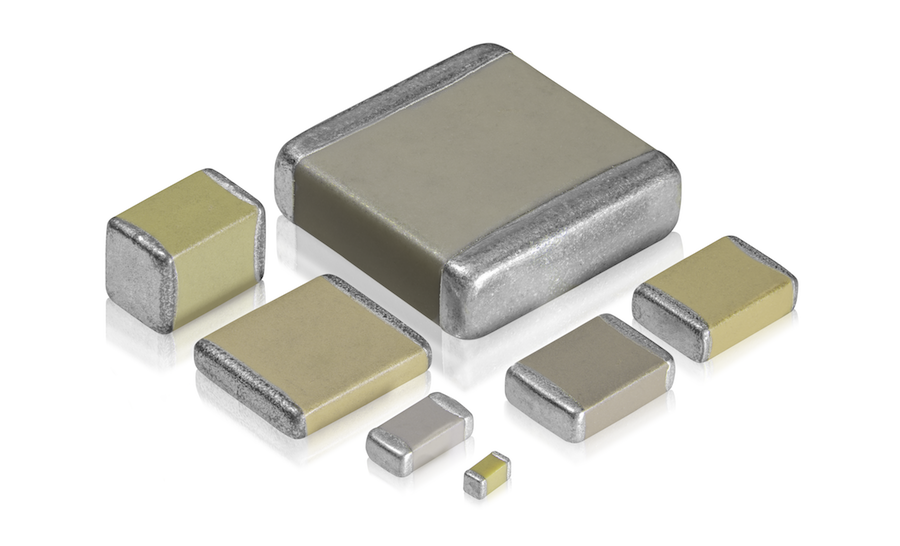In electric vehicle (EV) applications, filter capacitors are a special type of component commonly used as input and output capacitors. Also known as noise suppression or electromagnetic interference (EMI) filters, these particular capacitors act to remove noise and other unwanted signals on the line. On the high voltage alternating current (AC) side of a system, the capacitors often provide EMI filtering, whereas on the direct current (DC) side of a subsystem, they serve to smooth ripple components of the AC and filter out noise.
Looking Closer at Filter Capacitors in Electric Vehicles
Topics: Capacitor, Automotive, Electric Vehicles
Achieving high capacitance means going big. But how do you do that while still maximizing board space? At Knowles Precision Devices, we’ve developed a new method for building customizable large capacitor assemblies that capitalize on the vertical space above the circuit board. While stacked capacitor assemblies have been around for many years, these parts do not have very good bump and vibration withstand due to the thin leads used in their construction. These new assemblies from Knowles Precision Devices offer a ruggedized construction capable of withstanding high levels of shock and vibration. This offers a unique combination of capability, durability, high capacitance, and very high voltage in a smaller area, making these capacitors ideal for automotive, military, and aerospace applications.
Topics: Capacitor, Automotive, Military and Aerospace, Electric Vehicles, High Reliability
Supporting EV Battery Innovation with the Highest Voltage AEC-Q200 MLCCs
To meet consumer demand for longer driving ranges and faster charging, electric vehicle (EV) manufacturers are redesigning vehicles to move from 400V to 800V battery systems. As a result of using higher operating voltages, EV designers and original equipment manufacturers (OEMs) need components, such as multi-layer ceramic capacitors (MLCCs), that can withstand voltages well beyond those expected under normal operating conditions. For example, a drivetrain running off an 800V battery system may be subjected to a withstand test of up to 4kV DC for 60 seconds, which is a standard safety test in high voltage systems.
Topics: Capacitor, Automotive, Electric Vehicles
What to Think About When Replacing Film Capacitors with MLCCs
Today, the design and development of many applications, such as power electronics in electric vehicles (EVs), is driven largely by concerns about size and weight. This means the film capacitors traditionally used by electronics engineers aren’t always the best option. Instead, multi-layer ceramic capacitors (MLCCs) are emerging as an excellent alternative to film capacitors. Let’s review some of the considerations to keep in mind when you are deciding if making the switch is the right choice for your application.
Topics: Capacitor, Automotive, Electric Vehicles
When an engineer designs a circuit, he or she needs to ensure that each component will “do what it says on the box.” In multi-layer ceramic capacitor (MLCC) design, one area that often concerns engineers is the fact that capacitance can fluctuate with voltage, which is known as “DC bias” or “voltage coefficient.”
Topics: Capacitor, Automotive, Electric Vehicles
Meeting the Demands of High-Voltage Electric Vehicle Systems While Guaranteeing Reliability and Safety
As countries around the world tighten emissions standards, the demand for fully electric vehicles (EVs) is increasing. However, for EVs to see mainstream adoption, manufacturers must address the primary consumer concerns: longer driving ranges and faster charging. To address these concerns, EV manufacturers are beginning to redesign their vehicles to switch from the 400V battery systems widely used today to 800V battery systems, which can offer twice the voltage and 2.7 times the power density compared to a 400V system.
Topics: Capacitor, Automotive, Electric Vehicles, High Reliability
A Comprehensive Guide to Selecting the Right Capacitor for Your Specific Application Needs
At Knowles Precision Devices, our expertise in capacitor technology helps developers working on some of the world’s most demanding applications across the medical device, military and aerospace, telecommunications, and automotive industries.
Topics: Capacitor, Automotive, Military and Aerospace, Medical, Telecom
Understanding Temperature Rise of MLCCs in High-Power EV and HEV Applications
The advantages of multilayer ceramic (MLC) capacitors over plastic film types include their smaller physical size, lower inductance, and ability to operate at higher temperatures. These advantages make MLC capacitors very well suited to high power applications, such as power converter systems in electric (EV) and hybrid electric (HEV) vehicles.
Topics: Capacitor, Automotive, Electric Vehicles
Key Considerations for Selecting Multilayer Ceramic Capacitors for Electric Vehicles
The worldwide electric vehicle (EV) market is exploding in demand and mainstream adoption as governments push for fuel economy improvements and automotive companies look for new market opportunities. According to Forbes, “by 2020, EVs are likely to cost the same as conventional fuel powered equivalents.” Major manufacturers – like General Motors, Toyota, and BMW – plan to release “a mouthwatering potential of 400 models and estimated global sales of 25 million by 2025.” For EV design engineers and purchasing agents, this drive towards increased electrification results in the challenge of finding cutting-edge components that can handle increasing temperatures, voltage, and power without sacrificing reliability, availability, and footprint.
Topics: Capacitor, Automotive, Electric Vehicles

